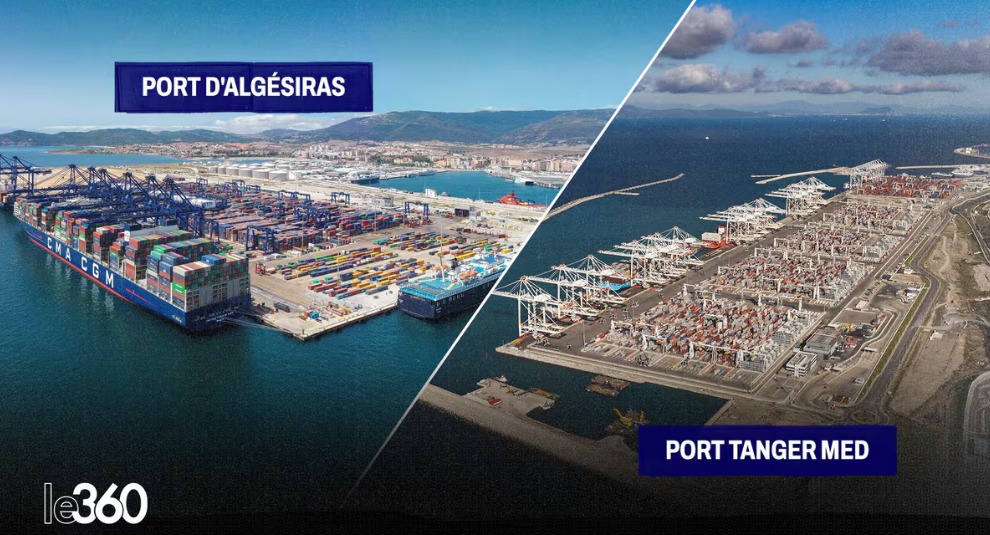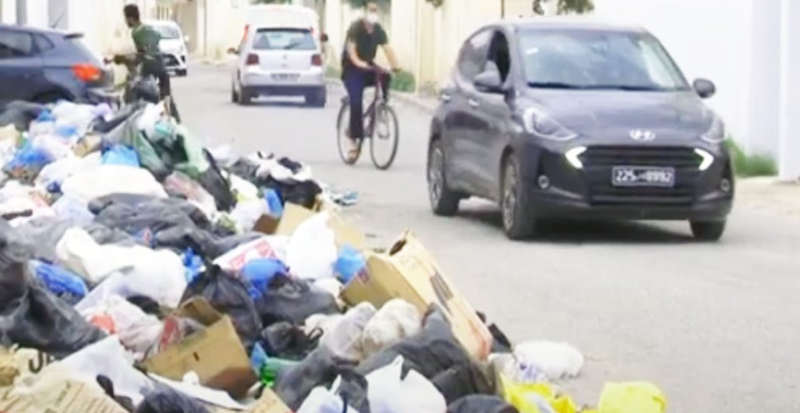Once upon a time, the port of Algeciras reigned supreme in the Mediterranean. An obligatory passage for maritime freight between the Mare nostrum and the Atlantic. But since 2007, Tanger Med emerged from the ground and shook up the hierarchy. In just a few years, this mega-infrastructure has become a global transshipment hub and an essential transit zone for the different links in the maritime logistics chain.
Over time, Tanger Med takes off and dethrones its Iberian neighbor. The year 2023 consolidates its leadership in the Mediterranean basin, with more than 8.61 million twenty-foot equivalent containers (TEU) processed, an increase of 13.4% compared to 2022. This remarkable performance, which represents 95% of the nominal capacity of the port, was achieved 4 years ahead of its objectives. Better still, the port platform of the city of the Strait far surpasses its Spanish rival which had handled nearly 4.7 million TEU containers during the same period.
Read also: Tanger Med: more than 8.6 million containers processed in 2023, 4 years ahead of targets
In 2023, the Moroccan port becomes the fourth best performing container port in the world, in the 2022 Global Container Port Performance Index (CPPI) published by the World Bank and S&P Global Market Intelligence. But Algeciras does not sit idly by. Far from there.
Madrid pulls out all the stops
The leadership of Tanger Med intrigues Madrid. Who reacts by putting his hand in his pocket. The Spanish government is pulling out all the stops to allow Algeciras to get back into the race. On February 1, two days after the announcement of the record financial results achieved by Tanger Med in 2023, the Spanish Minister of Transport and Sustainable Mobility, Óscar Puente, announced, during a visit to the Andalusian port, a public investment of 1.775 billion euros to strengthen its logistical competitiveness and make it a bridge to Europe and the Mediterranean.
This important investment was also confirmed by the president of the Port Authority of the Bay of Algeciras (APBA), Gerardo Landaluce, during a round table on the maritime connection between the port of Tanger Med and the port of Algeciras, organized on Wednesday March 6 in Casablanca by Tanger Med Port Authority (TMPA), APBA and the Moroccan Association of Exporters (ASMEX). According to him, “the objective is to connect the port with a network of dry ports and Spanish logistics zones extending to the Zaragoza region, 966 km from Algeciras“.
The real false “unfair competition” argument
Some lobbies in Madrid are hiding behind the risk of further increasing the domination of Tanger Med in the Mediterranean, through the carbon emissions trading system (ETS) set up by the European Union. Operational since January 1, 2024, this mechanism aims to tax the volumes of greenhouse gases emitted each year by EU shipping companies. However, the extra-European hubs of Tangier Med and Port Said in Egypt are also concerned since they are integrated into this system. So decided the European Commission which included Tangier Med and Port Said, two essential transshipment centers, in the revamped carbon pricing regime for European Union (EU) ships.
Read also: Dematerialization, exchanges with the EU… How Tanger Med and the port of Algeciras intend to strengthen their maritime connection
Spanish parties want people to believe the opposite. During an event organized by Radio Valencia Cadena Ser, on Friday March 8 in Valencia, Óscar Puente warned of the strong competition from Moroccan ports which, according to him, will particularly affect the enclaves of Valencia and Algeciras subject to this European regulation. “If we do not develop and increase our capacity, ports such as Nador and Tanger Med will, and we will lose this economic potential.he declared, specifying that these two ports “are not subject to European environmental regulations through the Emissions Trading System (ETS)“.
EU environmental tax: Tanger Med concerned
Already, the day after the entry into force of this environmental tax, in a statement to the Spanish daily EuropaSurGerardo Landaluce argued that this measure would lead to “a very significant loss of competitiveness» for European ports, and could encourage a “displacement of traffic to other ports, endangering employment, port activity and the management of logistics chains in the European Union“. According to him, this system places European ports in “a disadvantageous position compared to ports located in third countries such as Morocco», a barely veiled allusion to Tanger Med. But, obviously, nothing could be further from the truth and Tanger Med will be subject to the same taxes and will therefore have to be more competitive to be able to keep its place.
That’s the whole point. The comeback in sight of the port of Algeciras should nevertheless alert us to increasingly increased competition. The Tangier Med port, but also and above all the Moroccan State, would benefit from preparing for it today.




